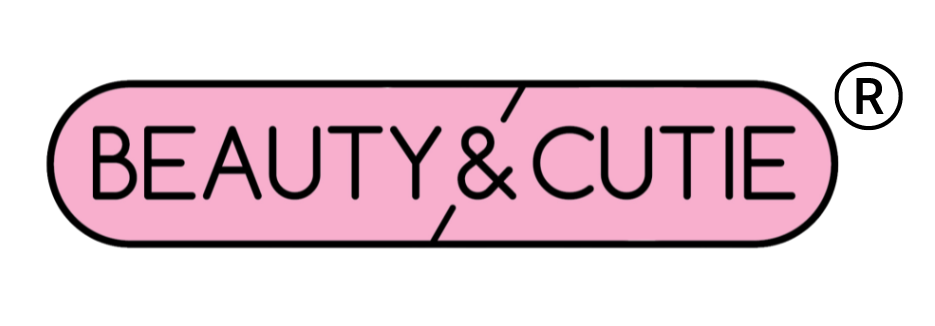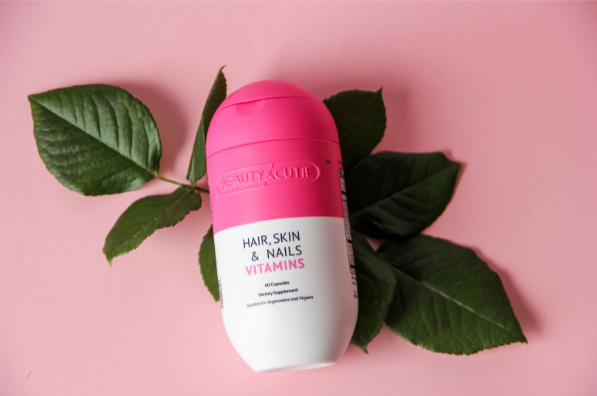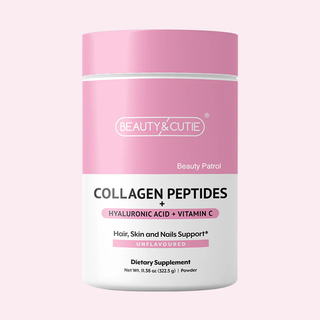A common question that we receive asks how long will it take for my Beauty & Cutie skin, hair and nail vitamins to work? This is the subject of today’s blog as there is no straightforward answer to the question because there are many different factors that contribute to the results. What we can say is that the answer will most likely not be expressed in days, but rather weeks and months. One should also avoid the temptation of examining the results of a Google search for “How long does it take for skin, hair, and nail vitamins to work?” as you will find many anecdotal responses from individuals that are of different age, general health, genetics and nutritional levels.
To provide the most accurate response, it may be prudent to examine the results of carefully designed study trials where measures of the desired effects of many of the individual ingredients in our product are recorded after various time points from individuals specifically selected with as many common traits as possible (ie. gender, age, general health and nutritional levels). This is done such that apples can be compared with apples and beneficial results are more easily attributable to the ingredient. Keep in mind the results of these trials are necessarily rigorously reviewed by highly qualified scientists and physicians working in hospitals, universities, and government laboratories prior to publication in academic journals.
What vitamins are best for hair, skin and nails?
In no particular order, we can begin with pantothenic acid, an ingredient in our formulation that has been found effective in treating acne and hair loss. In a randomized, blinded and placebo-controlled clinical study, 41 volunteers with facial acne lesions were evaluated after the 12-week study. A significant decrease was observed in lesion count and inflammatory lesions in the pantothenic acid group versus the placebo group at the 12-week endpoint.
A 3-month long randomized placebo control trial1 recruited 60 women to study the effect of an orthosilicic acid supplement (think of it as our silica from bamboo extract ingredient) on hair, skin and nails. Increased skin density and hair-breaking strength were observed in the supplement group after completion of the 3-month trial. This trial also contained a self-assessment component, and there was a clear difference between the two groups, with the supplement group reporting far more positive effects in the hair, skin and nail appearance and strength. A similar trial2 examining the effect of orthosilicic acid on hair strength in 48 women with fine hair that extended to 9 months determined a positive effect on elasticity, tensile strength break load and hair thickness. A similar effect on hair was observed after 20 weeks in another trial3, where a decreased skin roughness was additionally observed by those receiving the supplement.
Hyaluronic acid is lauded for its beneficial effects for keeping your skin beautifully moisturized. It has been the subject of several randomized, blinded placebo-controlled clinical trials4 ranging in length from 30 days to 12 weeks. All reported increases in skin moisture for the supplement group compared to placebo. In a more recent 12-week study evaluating the effect of hyaluronic acid, but this time focusing on wrinkles rather than skin moisture, significantly diminished wrinkles were observed after 8 weeks compared to those within the placebo group. Suppleness and skin luster were also observed to be greatly improved after 12 weeks.
Lysine is an ingredient that can be effective at treating symptoms related to herpes infections including cold sores and cankers that blemish our skin. To study its effect on these conditions, 1543 subjects were surveyed by questionnaire after a six-month trial period5 of lysine supplementation. A prevention of recurrence or decreased frequency of infection was noted by 84% of those surveyed. In the absence of lysine supplementation, 90% indicated that healing took between 6 and 15 days. However, 83% of those supplementing with lysine indicated a healing time of 5 days or less.
Of course, some of the benefits of supplements are “invisible” yet extremely important. For example, a study6 on the effects of oral vitamin C and E supplements, alone and combined, on susceptibility to sunburn was undertaken with 40 healthy volunteers divided into four groups of 10 (Vitamin C, Vitamin E, Vitamin C and E, Placebo). After 50 days of supplementation, the smallest dose of UV rays required to elicit skin inflammation (mimicking sunburn) increased by 77% for those taking both supplements, while no significant changes were observed in the groups supplementing with only vitamin C or vitamin E. This is a great example showing why it is so important to supplement with both vitamin C and vitamin E as they work in concert together to bring you extra protection from the harmful effects of the suns UV rays. A similar study7showed a modest increase in the smallest dose of UV rays before skin inflammation of 20% after 8 days of oral supplementation of both vitamins C and E, while another8 demonstrated a 40% increase after just 7 days. And one last study indicated that by lengthening the supplementation period of vitamin C and E together, benefits improve further. After 1 week the minimum dose of damaging UV irradiation increased by 21%, while after three months it had increased by 41%.
How long does it take for supplements to work?
Now let’s return to the original question: How long does it take for skin, hair, and nail vitamins to work? We’ve had a look at several clinical trials testing some of the individual ingredients in our product and the main point that we wish to make here is not so much their results, though all clearly demonstrated benefits, but rather the length of time for which they were carried out. Keep in mind that these studies were carefully designed by experts in the field, and they would know better than anyone how long it may take to observe meaningful and significant results. And they certainly do not want to halt the trials after too short of a period before any beneficial result might be achieved at risk of prematurely abandoning a product in which they have already heavily invested.
So with this in mind, our supplements will provide their first benefits in a manner that may not be visually obvious – providing additional protection to your skin from the harmful UV rays of the sun. This may occur as fast as a week after regular usage. If you suffer from any sort of skin disease you may see a visual effect (eg. decrease in lesions) from as little as a week, but also be prepared to wait a few months for a full self-evaluation. If you are particularly interested in relieving dry skin, then from anywhere between 1-3 months you should start noticing a difference. Effects on hair will probably take the longest to observe, perhaps from 3-6 months.
Take home message
This blog addressed the question of how long it takes for hair, skin and nail vitamins to work. It will differ for everyone depending upon your state of health, genetics and level of nutrition. But by examining the results and length of clinical trials of a selection of the ingredients in our supplements, we found that some positive effects could be accrued after as little as one week, while others would require up to 6 months. And one final key point. In many of these trials, the participants were often tested (eg. by a urine sample) to ensure they were taking the supplements as prescribed by the trial. If they found this was not the case, the participant was dropped from the trial. The message here is that if you are anxious to see the positive effects of the supplement, it is important to take them regularly. Slow and steady as they say.
Reference:
1.https://www.omicsonline.org/open-access/influence-of-an-oral-supplementation-based-on-orthosilicic-acid-cholinestabilized-on-skin-hair-and-nails-a-clinical-study-with-obj-2167-065X-1000160.php?aid=78837
2. https://pubmed.ncbi.nlm.nih.gov/17960402/
3. https://pubmed.ncbi.nlm.nih.gov/16205932/
4. https://www.ncbi.nlm.nih.gov/pmc/articles/PMC4110621/
5. https://pubmed.ncbi.nlm.nih.gov/6423612/
6. https://pubmed.ncbi.nlm.nih.gov/9870553/
7. https://pubmed.ncbi.nlm.nih.gov/9448204/
8. https://pubmed.ncbi.nlm.nih.gov/12013192/


